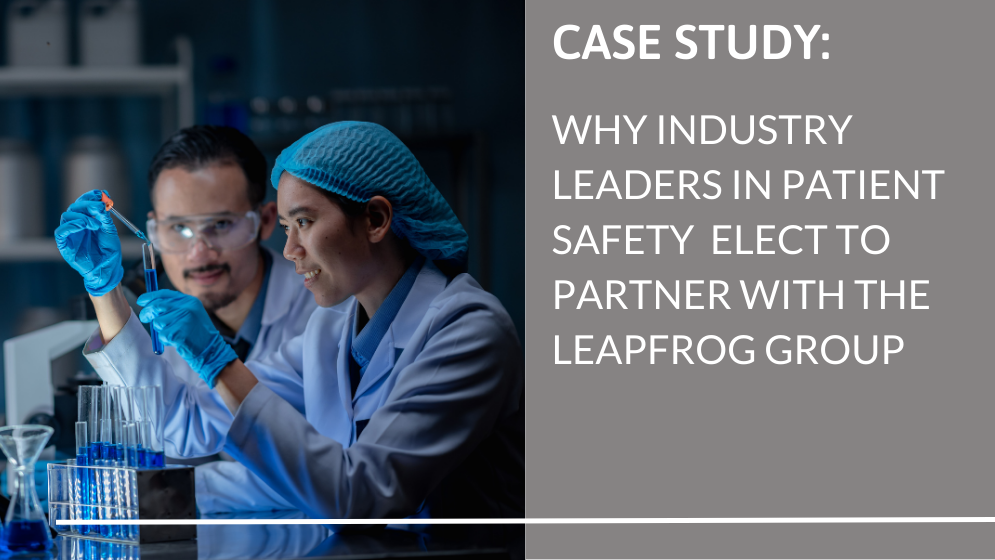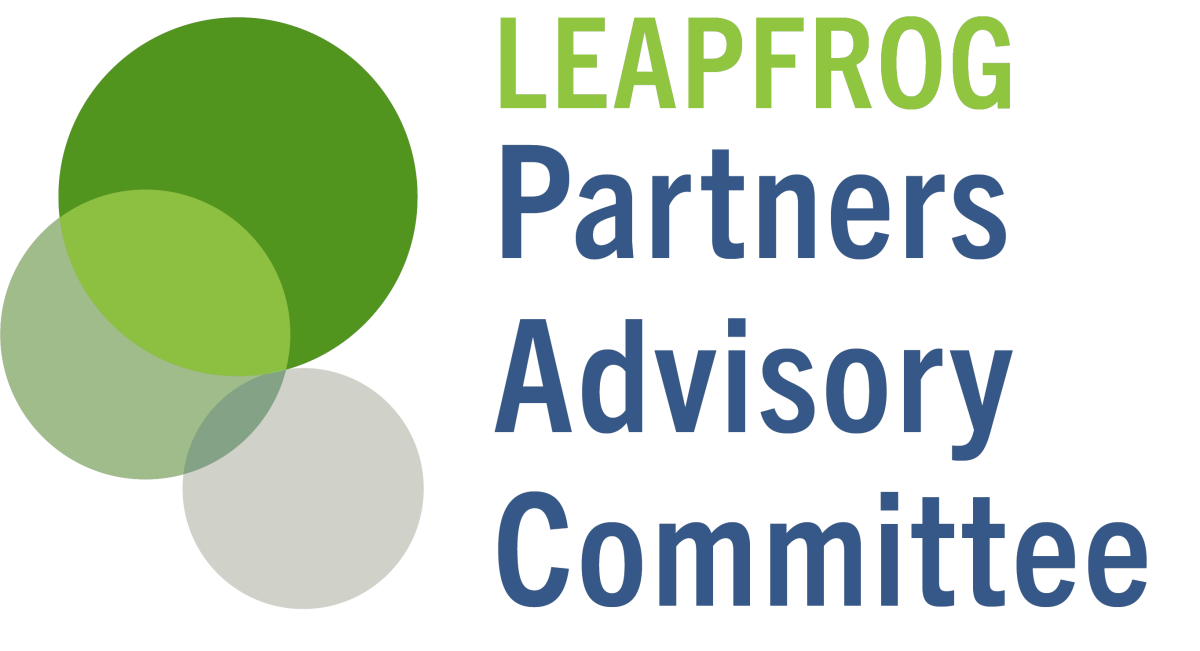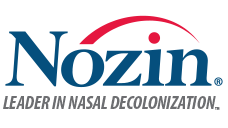
About The Leapfrog Partners Advisory Committee
The Partners Advisory Committee was established in 2009 to give health care companies a structured interactive forum for dialogue between the industry and Leapfrog’s Management and Board of Directors.
The Committee meets on a quarterly basis with members coming together twice a year via teleconference and twice a year in‐person in conjunction with the Leapfrog Board of Directors meetings. The Committee makes regular reports to Leapfrog’s Board of Directors on the Committee’s membership, proposals, and progress. It also serves as a platform for the creation, implementation, and evaluation of new partner‐driven initiatives that promote our shared vision and mission.

About Nozin
Located in Bethesda, MD, this U.S. based company follows a mission to improve the quality of life for people by enhancing healthcare with new products based on innovative patented and patent pending technologies. Nozin® Nasal Sanitizer® antiseptic is used by healthcare facilities for infection control and presents a new option to help reduce nasal carriage without antibiotics. Our Company motto is to "enhance life through innovative health technologies".
Backed by years of research and development, supported by NIH grants and successful clinical trials, Nozin products are directed at growing health maintenance and infection prevention markets. Made in the USA, Nozin products have been well received by doctors and healthcare professionals who use them and recommend them to patients. The Company intends to fulfill its mission through the development, marketing and sales of superior healthcare products throughout the world.

Leapfrog Director of Corporate Giving, Andrea Clay, interviewed Kevin Watson, Senior Director of Marketing at Nozin about their work to protect patients and why they support the Leapfrog Group's fight to make sure safety in health care is a priority.
Q: What patient safety problem was the Nozin company founded to solve?
A: The Nozin company was founded over 20 years ago to help protect patients against the risk of infection. Nozin scientists focused on the role of the nose in infection acquisition and transmission. They discovered that the skin of the nasal vestibule serves as a significant reservoir for pathogens. The nose is a point of entry that is frequently touched; however, this site is too often unaddressed for its role in pathogen acquisition and transmission. Reducing nasal carriage of pathogenic organisms at this site has been shown to significantly reduce infection risk.
Nozin® Nasal Sanitizer® antiseptic was developed to decrease this nasal bacteria carriage. The product is designed with a specially formulated, patented solution that is topically applied to the nasal vestibule. Millions of patients have received Nozin® Nasal Sanitizer® at over a thousand hospitals across the US. Today, Nozin infection prevention programs are implemented as a key part of hospital quality and patient safety.
Q: What makes the Nozin program for hospitals unique and innovative?
A: Nozin universal nasal decolonization programs provide hospitals with a clinically supported infection prevention solution to help improve patient outcomes.
- Nozin programs have been shown to help reduce healthcare-associated infections (HAIs).
- Nozin programs have the potential to deliver a significant positive financial impact reducing avoidable infections and associated excess length of stay.
- Nozin programs exclusively use Nozin® Nasal Sanitizer®, which can help reduce risk of infection and deliver a positive experience for patients. Nozin® Nasal Sanitizer® antiseptic is a non-antibiotic specially formulated, broad-spectrum antimicrobial for topical application to nasal vestibule skin.
- By focusing on nasal decolonization, the Nozin team is uniquely qualified to help provide hospitals with services, training and resources to implement successful programs.
Q: How does Nozin support patient safety?
A: We see striving for better patient safety at the core of healthcare services. With nasal colonization as a primary risk factor for healthcare-associated infections (HAIs), Nozin has a critical role to play. At the Nozin company, our Protect Every Patient™ service mission is to help hospitals decrease avoidable HAIs through universal nasal decolonization. This standard of care helps create a safer environment by reducing pathogen burden and potential for transmission. By integrating nasal decolonization with existing protocols, healthcare facilities enhance the overall effectiveness of their infection prevention programs. Our employees are dedicated to this mission to help improve patient safety.
Q: Why did Nozin join the Leapfrog Partners Advisory Committee (PAC)?
A: The Leapfrog Group has a strong track record of advocating for transparency and promoting patient safety in hospitals. The team at Nozin felt inspired to join The Leapfrog Group’s PAC because of a deep belief in the shared mission of improving patient safety and healthcare quality. As a supporter of Leapfrog’s initiatives that push for meaningful change in how care is delivered, we recognize that advocacy through the PAC is a powerful way to influence policy, drive reforms and team up with colleagues to help improve healthcare outcomes.
Q: What do you consider the most valuable benefits of your PAC membership?
A: The team at Nozin appreciates the collective effort to ensure that the policies and practices being developed today reflect the best interest of patients, encourage innovation, and ultimately make healthcare safer and more effective for everyone.
Q: How does the Leapfrog partnership work with your other marketing efforts?
A: The Leapfrog Partners Advisory Committee has created valuable opportunities for our leadership to develop new and meaningful relations with hospital leaders. Partnership outreach opportunities including webinars and digital marketing enables our team to drive awareness of Nozin infection prevention programs to new audiences. Furthermore, cobranding with The Leapfrog Group helps promote the unified message calling of better patient safety through a sustained, collaborative effort.
Q: What has your experience been attending the PAC meetings? And what connections have you made?
A: The PAC meetings have delivered learning experiences with a chance to meaningfully engage with fellow members, professional colleagues and Leapfrog personnel. We’ve broadened our understanding of the patient safety landscape through input and participation at event presentations, forums and exchanges with other PAC members. This community has an important role to play in advancing patient safety goals. We look forward to future opportunities to collaborate.
This case study was brought to you by the Leapfrog Partners Advisory Committee.
